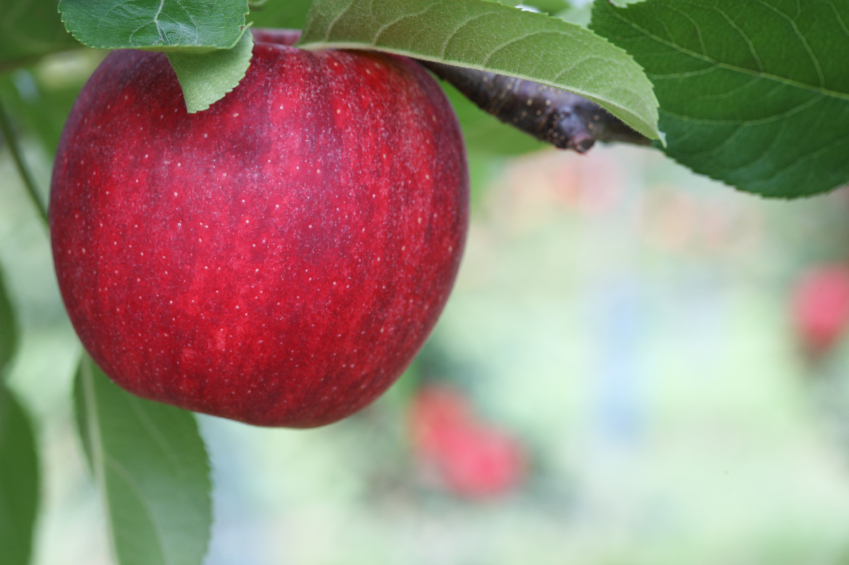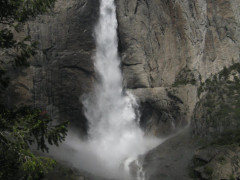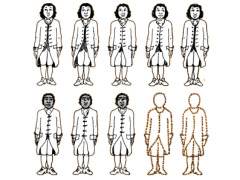Why did Adam and Eve eat food in Paradise?
[This post continues my discussion of why Aquinas holds there was no private property in Paradise. Other topics in the series include in order: 1. No property in Paradise, 2. Life in Paradise, 3. No Labor in Paradise, 4. Sexuality and Procreation in Paradise, 5. The Children of Adam and Eve, 6. Were Adam and Eve Vegetarians? 7. No Equality in Paradise, 8. Subjection and Government in Paradise]
If the climate of Paradise helped protect the first parents’ bodies from the external elements, the food of Paradise protected them from interior deterioration since “by the action of heat, the body might lose part of its humid qualities; and to prevent the entire consumption of the humor, man was obliged to take food.” Food was “necessary to entertain the natural heat, and to sustain the body.”[1]ST Ia, 97, 3; II-II, 164, ii, ad. 8. Other relevant passages include ST II-II, 164, ii, ad. 8; Ia, 97, iii; Ia, 97, iii. Aquinas is working here within the then current assumptions of the … Continue reading
Aquinas understands Adam and Eve to have had a positive mandate to eat food in order to protect their bodies, based on Genesis 2.14 in which “the LORD God commanded the man, saying, Of every tree of the garden thou mayest freely eat….” While one could reasonably interpret this Scriptural statement as permission to eat, Aquinas takes it as a mandate and command, concluding that it would have been a sin if Adam and Eve did not eat.[2]ST Ia, 97, iii In addition to this command by God, that they should eat in the garden, Aquinas follows Aristotle in assuming that natural law makes it self-evident that humans may make use of external things: since nature is designed in a hierarchy, the imperfect is made for the perfect. “Thus also in the state of innocence man’s mastership over plants and inanimate things consisted not in commanding or in changing them, but in making use of them without hindrance.”[3]ST Ia, 96, ii. Below we shall see that Aquinas applied this this logic to the eating of animals as well. In this way, natural law and revelation are aligned (which was part of Aquinas’s point) in indicating that human beings could make use of plants and inanimate things for their own purposes, even though in Paradise the purposes for which humans needed plants and inanimate things, apart from food, appear to be much fewer, if non-existent, as we shall see.
While Adam and Eve had to eat to protect their bodies from deterioration and aging, and had a religious obligation to do so, they did not experience bodily hunger or thirst the way we do today.[4]This is similar to their lack of sexual desire, as I discuss below. See ST III, 14, iv on hunger and thirst listed specifically as defects of the body consequent on sin of the first parents. Indeed, in Paradise, the intellectual part of the soul did not struggle with the rebellion of sensual appetites, which is one of the punishments for their first sins. In Paradise, by contrast, eating was the result of a rational choice and decision to protect their bodies, not a prompting of a bodily desire. Even when Eve ate from the tree of knowledge her primary sin was not gluttony, but pride, which was a sin of the soul and not the body, since in the state of innocence the body had not yet rebelled against the soul.[5]ST II-II, 162, i Thus, while the first humans were exempt from death and aging and from the rebellion of the sensual appetites, “the human body was not entirely exempt from the laws of nature.”[6]ST Ia 96, iv
Next up: No Labor in Paradise
References
| ↑1 | ST Ia, 97, 3; II-II, 164, ii, ad. 8. Other relevant passages include ST II-II, 164, ii, ad. 8; Ia, 97, iii; Ia, 97, iii. Aquinas is working here within the then current assumptions of the Hippocratic system of medicine, which explained the makeup and workings of the human body as based on an excess or deficiency of any of four distinct bodily fluids in a person — known as humors or humours — which directly influences their temperament and health. |
|---|---|
| ↑2 | ST Ia, 97, iii |
| ↑3 | ST Ia, 96, ii. Below we shall see that Aquinas applied this this logic to the eating of animals as well. |
| ↑4 | This is similar to their lack of sexual desire, as I discuss below. See ST III, 14, iv on hunger and thirst listed specifically as defects of the body consequent on sin of the first parents. |
| ↑5 | ST II-II, 162, i |
| ↑6 | ST Ia 96, iv |




